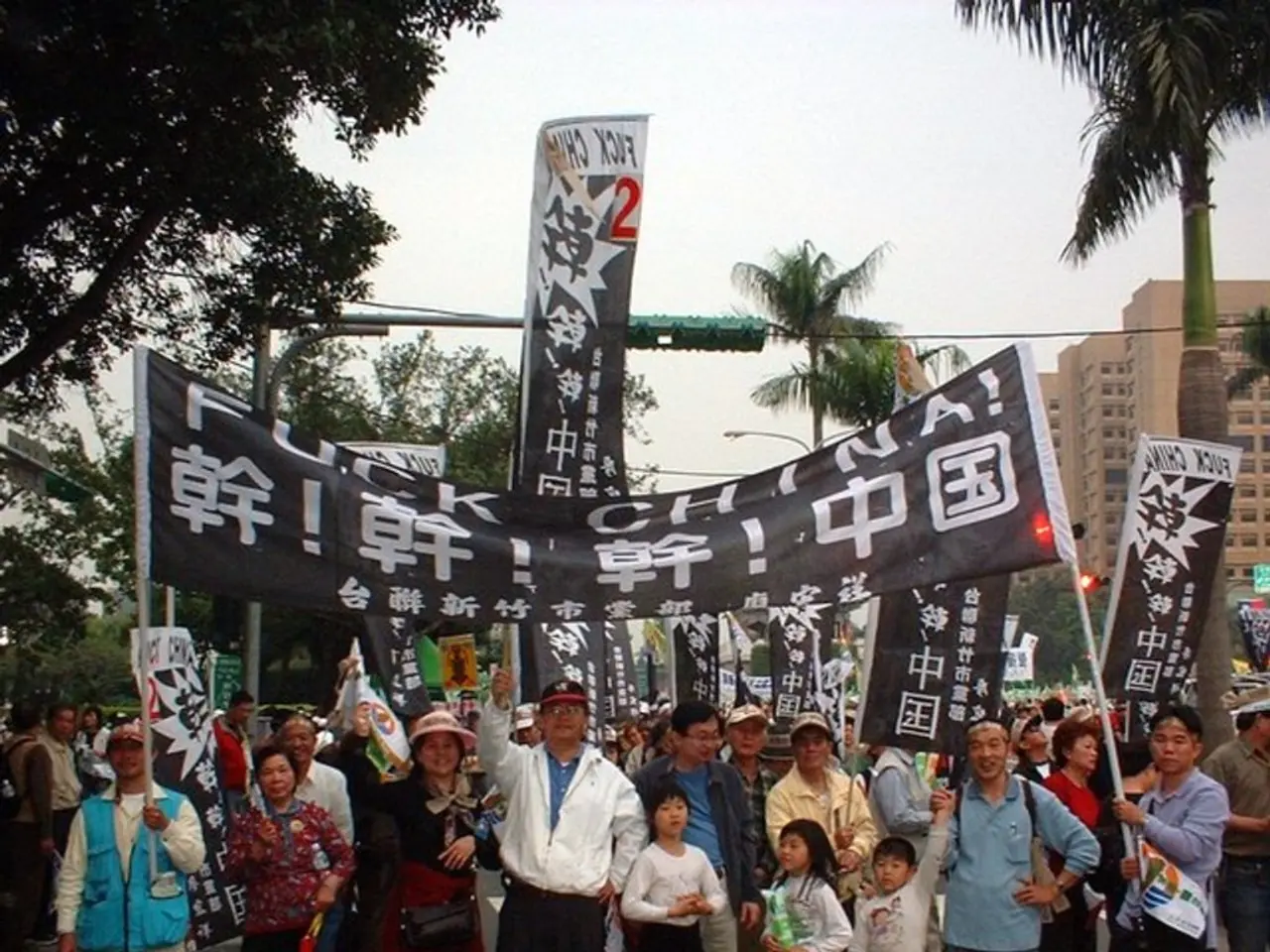The Impact of Your Wallet Goes Beyond Financial Control
Financial activism is on the rise in the United States, particularly among young people, as more individuals seek ways to make a difference in the face of feeling that influencing change through the political system is neither effective nor enough. This shift is evident in the growing movement aimed at holding corporations accountable for their role in the climate crisis.
Last February, the People's Union USA organised an "economic blackout", urging U.S. citizens to withhold their dollars for 24 hours. The aim was to send a message to giant companies, restore "fairness, economic justice, and real systemic change", and promote "government accountability and corporate reform". The boycott encouraged consumers to prioritise spending at small, local businesses, and only purchase essential items like food, medicine, and emergency supplies.
Financial activism is not a quick fix, but a long game, as argued by Rashid. Every dollar redirected is a step toward shifting the balance of power toward justice. In his book, The Financial Activist Playbook, Rashid identifies key strategies for financial activism, including talking about money, reconsidering banking, making conscious choices about buying, giving and receiving, shifting the flow of money on a macro scale through participatory budgeting, and investing and reshaping business.
Indigenous communities worldwide have drawn on their traditional ecological knowledge to successfully advocate for climate justice and push for important policy and legal changes. Giving circles and mutual aid groups, such as Cooperation Jackson in Mississippi and the Oregon Worker Relief Fund, are powerful, community-led funding models that redistribute wealth and resources based on solidarity rather than charity. The Oregon Worker Relief Fund provided direct economic aid to undocumented workers during wildfires and the COVID-19 pandemic.
The impact investing sector, which encompasses ethical venture capital firms and sustainability and ethics-focused funds, saw assets under its management grow rapidly over the past five years to more than $1.5 trillion globally. Participatory budgeting is a strategy for financial activism that involves people having a direct democratic vote in where budgets are allocated, whether at the municipal, federal, or local level.
Shareholder activism is also evolving, with investors, including smaller but strategic ones, increasingly pushing for environmental, social, and governance (ESG) changes. Activism has expanded from purely financial demands to broader demands for corporate responsibility regarding climate and sustainability issues. In 2025, shareholder activism is increasingly sophisticated, with investors leveraging influence to drive major corporations to adopt more sustainable energy practices and enhance transparency on climate-related impacts.
A prominent example is the activist hedge fund Engine No. 1, which successfully gained board seats at ExxonMobil to push the company toward energy transition, demonstrating that even relatively small shareholders, when aligned with institutional investors, can influence corporate behaviour on climate issues. This evolution shows that environmental concerns have become central in shareholder activism, shifting it into a tool for wider corporate transformation beyond financial restructuring.
While much of this activism stems from sophisticated investors, grassroots financial activism also plays a role by pushing socially responsible investment agendas and supporting shareholder proposals addressing the climate crisis. However, the most visible and impactful campaigns often involve collaboration between smaller activist groups and larger institutional investors to influence shareholder votes and company policies.
Tori Dunlap, founder of financial-education platform Her First $100K, emphasises the importance of taking financial education seriously and pursuing pathways toward financial independence, especially during times of increased economic barriers and widening wealth gaps. Jaycie Hricak, a Philadelphia-based victim advocate, participated in the effort and found it an easy way to hold corporations accountable. Bridget Badore, a photographer based in Kingston, New York, also participated in the boycott. She tries to spend money consciously and move intentionally around capitalism.
Financial activism is about reclaiming wealth and a sense of collective well-being, and empowering communities to live more full and equitable lives. It refers to everyday people and organizations taking an active role in shifting the flow of money and power to solve social and environmental problems. As more individuals and groups become aware of their power to effect change, financial activism is likely to continue growing and evolving in the years to come.
References:
[1] Corley, K. (2021). The Financial Activist's Guide to Real Change. Berrett-Koehler Publishers.
[2] Krause, A. (2021). Shareholder Activism and Climate Change: A New Era of Corporate Transformation. Cambridge University Press.
- Financial activism in the United States is on the rise, with more individuals seeking ways to make a difference in the face of climate-change, particularly among young people who feel that influencing change through the political system is neither effective nor enough.
- This movement aims at holding corporations accountable for their role in the climate crisis, as seen in the "economic blackout" organized by the People's Union USA last February, urging U.S. citizens to withhold their dollars for 24 hours.
- Rashid's book, The Financial Activist Playbook, identifies key strategies for financial activism, including investing and reshaping business, shifting the flow of money on a macro scale through participatory budgeting, and making conscious choices about buying, giving and receiving.
- Giving circles and mutual aid groups, such as Cooperation Jackson in Mississippi and the Oregon Worker Relief Fund, are powerful, community-led funding models that redistribute wealth and resources based on solidarity rather than charity, like the Oregon Worker Relief Fund providing direct economic aid to undocumented workers during wildfires and the COVID-19 pandemic.
- The impact investing sector, which encompasses ethical venture capital firms and sustainability and ethics-focused funds, saw assets under its management grow rapidly over the past five years, reaching more than $1.5 trillion globally, as shareholder activism evolves to push for environmental, social, and governance (ESG) changes in companies like ExxonMobil towards adopting sustainable energy practices and enhancing transparency on climate-related impacts.




